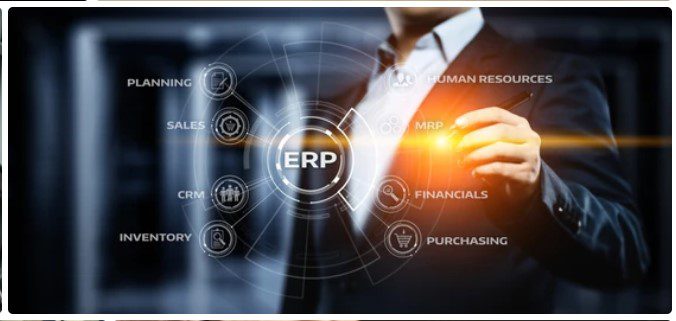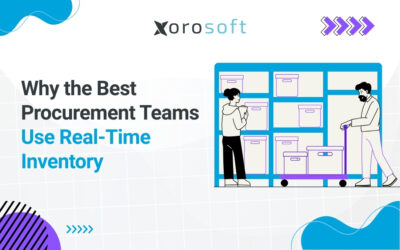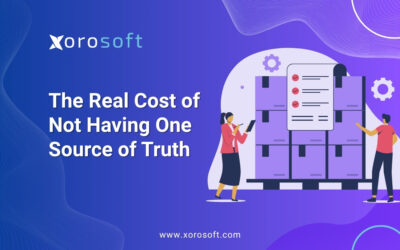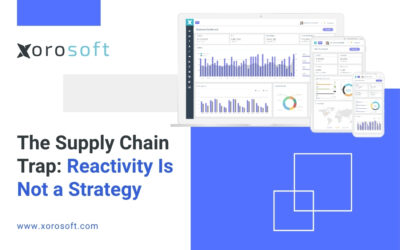
Introduction to supply chain management and its importance
Supply chain management plays a crucial role in the success of any business. It involves the coordination and optimization of various processes, from the procurement of raw materials to the delivery of finished products to customers. Effective supply chain management ensures timely delivery, reduces costs, and improves overall efficiency. In today’s fast-paced business environment, companies need advanced tools and technologies to streamline their supply chain operations. One such tool is an Enterprise Resource Planning (ERP) system.
Understanding the role of an ERP system in supply chain management
An ERP system is a comprehensive software solution that integrates various business functions, including finance, sales, purchasing, and inventory management. It provides real-time visibility into the entire supply chain, enabling businesses to make data-driven decisions and optimize their operations. With an ERP system in place, companies can automate their supply chain processes, reduce manual errors, and improve collaboration among different departments. This leads to increased efficiency, reduced costs, and enhanced customer satisfaction.
Introducing XoroERP – An advanced ERP solution for businesses
XoroERP, developed by Xorosoft, is an advanced ERP solution designed specifically for businesses looking to maximize their supply chain efficiency. It offers a wide range of features and benefits that help companies streamline their operations and boost their overall performance. XoroERP’s supply chain management module is a powerful tool that enables businesses to effectively manage their inventory, optimize procurement processes, and improve order fulfillment. With its user-friendly interface and robust functionality, XoroERP is the perfect solution for businesses of all sizes and industries.
Key features and benefits of XoroERP’s supply chain management module
XoroERP’s supply chain management module offers a plethora of features that empower businesses to take control of their supply chain operations. Some of the key features include:
- Inventory Management System: XoroERP provides real-time inventory tracking, ensuring businesses always have accurate information about stock levels, order status, and demand. This helps companies avoid stockouts, reduce carrying costs, and improve order fulfillment.
- Demand Planning and Forecasting: With XoroERP, businesses can analyze historical data, market trends, and customer demand to make accurate forecasts. This enables companies to optimize their procurement processes, reduce excess inventory, and minimize stock obsolescence.
- Supplier Management: XoroERP enables businesses to effectively manage their supplier relationships. It provides tools for supplier evaluation, performance monitoring, and contract management. This helps companies identify the best suppliers, negotiate better terms, and ensure timely delivery of goods.
- Order Management: XoroERP’s order management capabilities allow businesses to efficiently process customer orders, track their progress, and ensure on-time delivery. This leads to improved customer satisfaction and loyalty.
By leveraging these features, businesses can achieve several benefits, including:
- Improved supply chain visibility and transparency
- Reduced inventory carrying costs
- Enhanced order fulfillment and customer satisfaction
- Streamlined procurement processes
- Better supplier relationships and negotiation power
Streamlining inventory management with XoroERP
Effective inventory management is crucial for businesses to ensure smooth operations and meet customer demands. XoroERP’s inventory management system provides businesses with real-time visibility into their inventory levels, helping them make informed decisions about stock replenishment, order fulfillment, and demand forecasting. With XoroERP, businesses can eliminate manual processes and reduce human errors, leading to improved accuracy and efficiency in managing their inventory.
The system allows businesses to track inventory movements across multiple locations, providing an accurate picture of stock levels at any given time. This enables companies to optimize their inventory by identifying slow-moving items, reducing excess stock, and avoiding stockouts. By streamlining inventory management with XoroERP, businesses can reduce carrying costs, improve cash flow, and enhance their overall supply chain performance.
Enhancing financial management and accounting processes with XoroERP
In addition to its supply chain management capabilities, XoroERP also offers robust financial management and accounting features. The system automates financial processes such as invoicing, payment tracking, and financial reporting, reducing manual errors and improving accuracy. With XoroERP, businesses can streamline their financial workflows, improve cash flow management, and make informed financial decisions.
XoroERP’s accounting module provides businesses with real-time visibility into their financial data, allowing them to track expenses, analyze profitability, and generate accurate financial reports. The system also integrates with banks and other financial institutions, enabling seamless payment processing and reconciliation. By enhancing financial management and accounting processes with XoroERP, businesses can save time, reduce costs, and improve overall financial performance.
Implementing XoroERP: Steps to successful integration
To successfully integrate XoroERP into your business’s supply chain management processes, it is essential to follow a systematic approach. Here are the key steps to consider:
- Assess your business needs: Identify the specific challenges and pain points in your supply chain operations. Determine the key features and functionalities you require from an ERP system.
- Choose the right implementation partner: Select a reputable ERP implementation partner who has experience in your industry and understands your business requirements.
- Plan and prepare for implementation: Develop a comprehensive implementation plan that outlines the timelines, resources, and responsibilities. Ensure that your team is trained and prepared for the transition.
- Data migration and system configuration: Migrate your existing data into XoroERP and configure the system according to your business needs.
- Testing and validation: Conduct thorough testing to ensure that the system is functioning as expected. Validate the accuracy of data and processes.
- Training and user adoption: Train your employees on how to use XoroERP effectively. Encourage user adoption by highlighting the benefits and providing ongoing support.
- Continuous improvement: Regularly review and evaluate the performance of XoroERP. Identify areas for improvement and implement necessary changes to maximize its potential.
Cost and ROI analysis of XoroERP implementation
Implementing an ERP system like XoroERP requires an investment of both time and financial resources. However, the benefits and return on investment (ROI) it brings can far outweigh the costs. When analyzing the cost of XoroERP implementation, it is crucial to consider the following factors:
- Software licensing and implementation costs: This includes the cost of purchasing the software licenses and the fees associated with implementing and configuring the system.
- Training and support costs: This includes the cost of training your employees on how to use XoroERP effectively and any ongoing support or maintenance fees.
- Hardware and infrastructure costs: Depending on your current IT infrastructure, you may need to invest in additional hardware or infrastructure upgrades to support the ERP system.
- Opportunity costs: Consider the potential benefits and cost savings that XoroERP can bring, such as improved efficiency, reduced inventory carrying costs, and enhanced customer satisfaction.
To determine the ROI of XoroERP implementation, compare the projected cost savings and benefits with the initial investment. Calculate the payback period and the net present value (NPV) of the investment. These financial metrics will help you assess the financial viability and potential return on investment of implementing XoroERP.
Conclusion: Leveraging XoroERP for optimized supply chain management
In today’s competitive business landscape, efficient supply chain management is crucial for the success and growth of businesses. XoroERP, with its advanced supply chain management module, offers a comprehensive solution for businesses looking to streamline their operations, reduce costs, and improve overall efficiency. By leveraging XoroERP’s features and capabilities, businesses can gain real-time visibility into their supply chain, optimize inventory management, enhance financial processes, and transform their supply chain operations.
To experience the power of XoroERP firsthand, book a demo with Xorosoft today. Discover how this advanced ERP solution can revolutionize your supply chain management and drive your business towards success.









